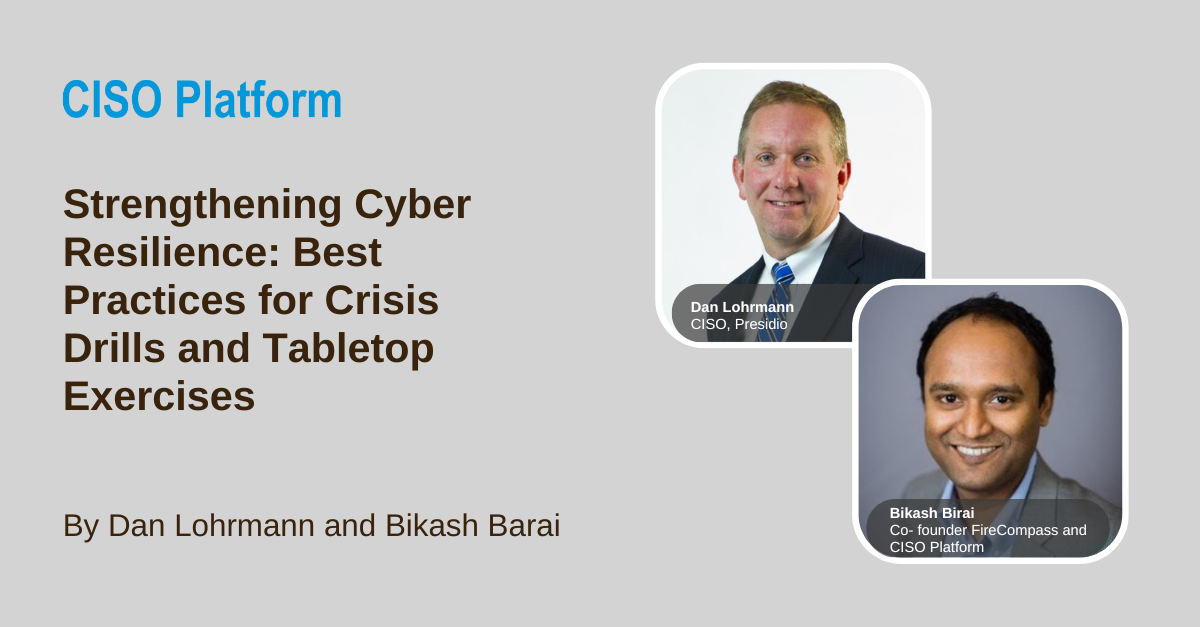In the ever-evolving landscape of cybersecurity, enterprises face the constant threat of cyberattacks. To fortify their defenses and enhance their preparedness, organizations must conduct regular tabletop exercises for cyber crisis management. Drawing from extensive experience in both government and private sectors, we'll outline a structured framework for conducting these exercises effectively.
.
Here is the verbatim discussion:
How long should it be? What should be the structure? What are some best practices? What are some do's and don'ts? So building a kind of high level structured framework for conducting cyber crisis drill for enterprise, how would you approach that? Great question. Yeah. Solve been a part of many of those, both within government and nowin the private sector, working with us, with infragard, with federal agencies, with us state agencies and others. So, first of all, obviously, there are different types of tabletops. i'm going to talk about one that really, for example, in Michigan, would be a whole of government approach, which really needs to involve the top executive.That's very interesting, Dan. So, Dan, let's consider a scenario like this that suppose we have to do a tabletop exercise for an enterprise. Can you give a kind of playbook for conducting tabletop crisis,cyber crisis drill? So you can start with, like, who are the folks who should be in the room? How long should it be? What should be the structure? What are some best practices? What are some do's and don'ts? So building a kind of high level structured framework for conducting cyber crisis drill for enterprise, how would you approach that?


Comments